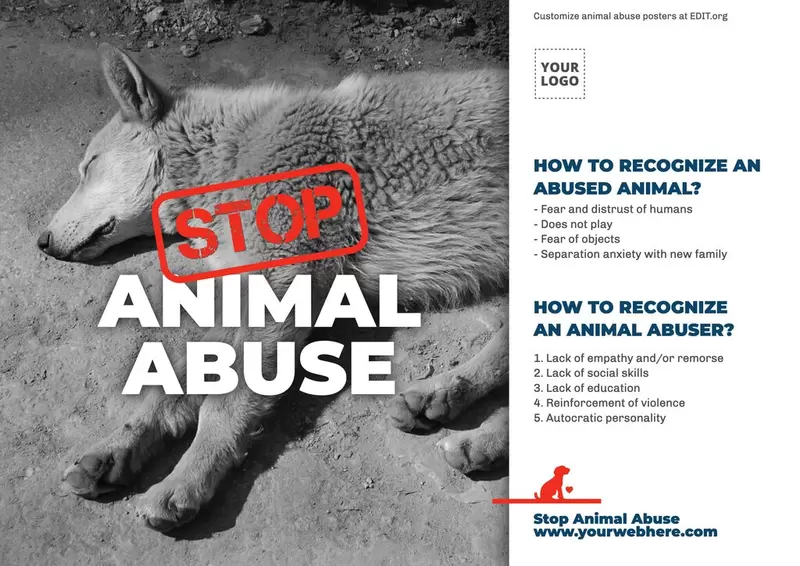Animal cruelty remains a pressing issue in various parts of the United States, including Kentucky. Painful incidents, ranging from neglect to outright abuse, necessitate vigilant reporting mechanisms. The decision to report is crucial; every act makes a difference and promotes a culture of accountability. This guide elucidates the multifaceted aspects of reporting animal cruelty in Kentucky, ensuring that all concerned citizens are equipped to take action against such heinous acts.
Understanding Animal Cruelty
Before embarking on the reporting process, it is essential to comprehend what constitutes animal cruelty under Kentucky law. The statute defines various forms of cruelty, including physical abuse, neglect, abandonment, and excessive confinement. Animals suffering from malnutrition, untreated medical conditions, or living in unsanitary conditions fall under the purview of neglect. It’s significant to acknowledge that animal cruelty doesn’t solely encompass physical harm. Emotional distress, caused by undue stress or a hostile environment, also merits concern. Recognizing these elements is the first step toward taking responsible action.
Identifying Signs of Animal Cruelty
Awareness is crucial in unearthing instances of animal cruelty. Common signs may include:
- Poor Physical Condition: Animals that are underweight, have matted fur, or exhibit untreated injuries fall into this category.
- Behavioral Indicators: Fearfulness in animals, whether through cowering or aggression, can signal distress.
- Inadequate Living Conditions: Crowded cages, lack of ventilation, or unprotected exposure to varying weather can exacerbate trauma.
- Neglect of Basic Needs: Absence of food, water, or veterinary care are telltale signs of neglect.
Witnessing such signs can be distressing, yet it underscores the urgency of intervention. Taking note of these symptoms can bolster the validity of your report.
Documenting Evidence
Rational documentation is paramount when reporting animal cruelty. Compiling evidence may encompass the following:
- Photography: Capture clear images depicting the animal’s condition and surroundings. Aim for comprehensive shots showcasing the state of the animal and its living space.
- Written Observations: Maintain a detailed log, including dates, times, and descriptions of observed behaviors or conditions. These narratives provide context and can prove invaluable when authorities investigate.
- Witness Statements: If other individuals are privy to the situation, securing their testimonies can strengthen your case. Collaborative accounts lend credibility and urgency.
The act of documentation not only substantiates your observations but also provides law enforcement with a basis for action.
How to Report Animal Cruelty
Once you have identified a situation warranting action, the next step is reporting it to the appropriate authorities. In Kentucky, there are multiple avenues to pursue:
- Local Animal Control: Most counties have dedicated animal control officers who handle complaints about animal welfare. Provided with your compiled evidence, they can investigate the matter thoroughly.
- Law Enforcement Agencies: If severe abuse is evident or if an immediate threat to life exists, contacting your local police department is vital. Legal officers are trained to address criminal behavior and can provide timely intervention.
- Humane Societies or Animal Shelters: Local humane organizations often have protocols in place to handle reports of abuse and neglect. They can offer resources, support, and may take direct action to rescue animals in distress.
- State Animal Welfare Agencies: The Kentucky Department of Agriculture oversees animal welfare regulations and can address broader systemic concerns.
Filing a report can seem intimidating; however, it is essential to remember that you may remain anonymous if necessary. Your safety and comfort should not impede a timely report.
After Reporting: Following Up
Upon filing a report, it is prudent to follow up to ascertain the matter is being addressed. Not all complaints result in immediate action, and repeated inquiries may encourage urgency. Document these interactions, as well; they may also be key in establishing a pattern of neglect or abuse.
Investing efforts into advocacy by joining local animal rights groups can further amplify the importance of your report. Educating the community on the ramifications of cruelty fosters collective responsibility.
Legal Consequences and Penalties
Being aware of the legal framework surrounding animal cruelty is essential. In Kentucky, animal cruelty is classified as a misdemeanor or felony, depending on the severity of the act. Misdemeanor charges may lead to fines or brief jail sentences, whereas felony charges can impose significantly harsher penalties, including longer incarceration periods and restitution for veterinary costs.
Understanding these legal implications not only reinforces the gravity of reporting but strengthens community resolve against cruelty. The imposition of severe fines or penalties serves as a deterrent against future misconduct.
Conclusion
In conclusion, reporting animal cruelty in Kentucky necessitates vigilance, awareness, and courage. By comprehensively understanding the signs of abuse and the subsequent reporting process, individuals can act as advocates for voiceless beings in their communities. Often, it is just one act of reporting that can alter an animal’s fate, paving the way for a more humane society.
Let your voice resonate—report responsibly, advocate actively, and contribute to dismantling the pervasive culture of cruelty that often lingers within societal shadows. It is a collective responsibility to protect those who cannot protect themselves.








